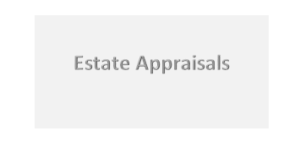Valuation of two old world paintings in Kollsman v. Commissioner
 The United States Court of Appeals for the Ninth Circuit recently affirmed a 2017 Tax Court decision in Estate of Eva Franzen Kollsman v. Commissioner (T.C. Memo. 2017-40) in rejecting the valuation of two old world paintings by a premier auction house executive.
The United States Court of Appeals for the Ninth Circuit recently affirmed a 2017 Tax Court decision in Estate of Eva Franzen Kollsman v. Commissioner (T.C. Memo. 2017-40) in rejecting the valuation of two old world paintings by a premier auction house executive.
The decision should provide estate planners, attorneys, accountants, executors and those charged with the administration of taxable estates with several valuable lessons for selecting a professional to value an asset for estate tax purposes. Hiring an unqualified big name to value an estate asset is no substitute for hiring a certified appraiser who is experienced, knowledgeable and subject to rigorous professional standards. Moreover, an expert who is free from conflicts of interest, both actual and perceived.
The Kollsman Estate (the “Estate”) Case involved a dispute with the IRS over the value of a pair of 17th Century Renaissance era painting. Specifically, the Estate hired a Sotheby’s Vice President to value the two paintings in question. George Wachter (“Wachter”), a Sotheby’s Vice President had over 40 years of experience in the art industry and held several important titles including chairman of Sotheby’s Auction House operations for North and South America and co-chairman of Sotheby’s old masters paintings globally. However, Wachter was not certified as an appraiser.
In support of the valuation, the Estate relied upon a letter from Wachter, rather than a formal appraisal report from a Certified Appraiser, which notably, did not include a comparable sales analysis. Moreover, the valuation letter was accompanied by a letter agreement, which provided the terms under which Sotheby’s would auction the two paintings.
In his letter to the estate, Wachter valued one painting at $500,000 and the other at $100,000 citing the layers of grime on the surface of the paintings and the substantial risk that restoration could devalue the paintings. Wachter’s claim that the restoration services associated with cleaning the paintings would pose a significant risk of devaluing the two art works was contradicted by a fine art restoration company, who examined the paintings within a month of the decedent’s death and concluded that the cleaning process was “reasonably safe.” The expert’s opinion was further undermined by his conflict of interest, since Wachter offered to sell the paintings at Sotheby’s at the same time he opined on the value of the two paintings.
The Tax Court, relying upon its own expert determined that the two paintings were worth about $2 million and $375,000, respectively.
Appraiser’s credentials are crucial in valuations for a taxpayer
Estate planners, attorney and other professional involved in estate planning and administration have a duty to conduct due diligence when selecting an appraiser, including determining the appraiser’s credentials, whether the appraiser is certified, and if so, the area of specialization, the number of expert reports the appraiser has prepared in his career, whether the reports were prepared in the context of contested valuations, the appraiser’s track record and whether the appraiser has a conflict of interest. While there is no legal requirement that an appraiser be certified, good business judgment dictates hiring someone who is certified.
In the instant case, it appears that the Estate either decided to save on fees or simply did not understand the significance of hiring an appraiser. The facts suggest that the valuation letter was issued as part of Sotheby’s pitch to secure the auction rights to the Estate’s two paintings, and as such, may have been included for free. An experienced executor or the tax professionals preparing the estate tax return should have known better.
The failure to properly vet those who provide valuation services can result in poor results for a taxpayer engaged in a tax controversy with the IRS, and could constitute a basis for professional malpractice.
 The Biden Tax Proposal, if enacted, will have a significant impact on estate planning for those who have failed to take advantage of the current gift and estate tax rules. According to the Proposal, estate and gift tax exemption will be reduced from 11.58 million under the current law to $3.5 million. In addition, the Biden Proposal will increase the top rate for estate tax from 40 percent to 45 percent.
The Biden Tax Proposal, if enacted, will have a significant impact on estate planning for those who have failed to take advantage of the current gift and estate tax rules. According to the Proposal, estate and gift tax exemption will be reduced from 11.58 million under the current law to $3.5 million. In addition, the Biden Proposal will increase the top rate for estate tax from 40 percent to 45 percent.
 The United States Court of Appeals for the Ninth Circuit recently affirmed a 2017 Tax Court decision in
The United States Court of Appeals for the Ninth Circuit recently affirmed a 2017 Tax Court decision in 
